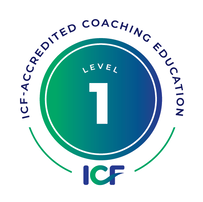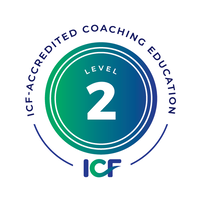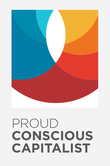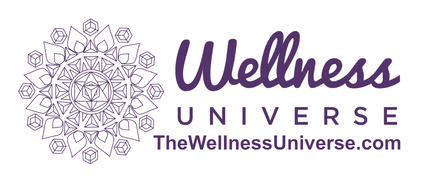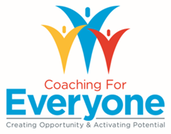 By Laurel Elders A Course in Miracles teaches that words are three times removed from reality. This makes sense because there is a phenomenon that happens, then we interpret what we've seen, and then we judge it to be "good, bad, right or wrong." Today's exploration journeys into the heart of the teaching and into the heart of a language beyond words. Step one: Watch this video. The Power of the Heart https://youtu.be/4MNHsNn19ug?si=-0zd8UOH0jnPG_8u Step two: Consider the following. This research is one body of work that helps us understand how to develop our integrative intelligence. Imagine what your heart is connected to. First of all, let's be real. Surface science tells us the results to that study are 100% physically impossible. This would be a rational conclusion. Yet, quantum physics tells us space and time do not apply to energy in the same ways they impact physical relativity. Much like a radio antenna picks up on waves, the heart is capable of picking up on something much greater. Before the scientific method was popularized, the Egyptians seemed to respect this greater truth. During the mummification process, they removed all of the organs except one. They left the heart. Why? It was deemed the center of knowledge. What does all of this have to do with our self-knowledge, efficacy, and life purpose? I'm about to make a statement that may seem absurd to you. In this day and age consider how we've viewed the heart and various emotional states as wishy-washy. We've determined that emotions include the most prominent experiences, such as happy, mad, sad, joyful, etc. I now see two overlooked emotions that may be the most important ones we have and are embedded in the heart of this exploration. I posit that "yes" and "no" are the most important and yet the most overlooked emotions we possess. Why is it the most overlooked? The ego's version of "yes" and "no" is based on judgment. Somehow, somewhere, we missed the essence and felt-sense emotional components of "yes" and "no." Why the most important? Yes and no are the language of the heart. When we confuse them with judgment calls, we accidentally overlook their true meaning and rich value. Moving from egoic living and leading into a heart-centered, service-oriented, integratively intelligent way of being requires us to learn the language of our heart. The heart speaks in a simple language, which perhaps caused it to be lost on us. The heart has three emotional responses: yes, no, or maybe. These three could also translate into: love, fear, or unclear. And within the yes, sometimes there is a fourth response: yes, but not now. In life, we sometimes discount our emotional states. The ego judges emotions as "good, bad, right, wrong." Yet emotions are a mirror to our soul. They reflect the deeper emotional response that our heart is telling us: yes, no, maybe, or not now. Or: love, fear, unclear, or patience. The heart's emotional response speaks to what is in or out of alignment with our values, purpose, and truth. The heart is the only part of us incapable of self-deception. Next time you feel a strong emotion, consider, "What is the deeper yes, no, or maybe swimming beneath?" How well do I know the language of my own heart in my life or as a leader? What does this lesson have to teach me?
0 Comments
 By Laurel Elders How often do you feel masterful? When does it seem to fade? When does the feeling shine? The concept of self-mastery is a focal point in coaching. A coach is hired to take a person deeper into their own wisdom and self-discover their wholeness and power, thus becoming more masterful. Yet, in our modern day society, there are many myths about self-mastery. Some internalized and some externally imposed. Today, we will explore what true self-mastery looks like and how to dispel the myths so that we can embrace the fullest version of our Self. The ego's version of self-mastery looks like this:
Yet, the reality of self-mastery is much different. In reality, self-mastery looks more like this:
The biggest myth about self-mastery is that we become perfect. Yet, perfection in the world of relativity is an illusion. Our lives, energy, and conscience are all subject to what we externally call chaos, but in truth, it is reality pulling at the strings of our interconnected nature. True self-mastery is responsiveness to what is. It is not forced or coerced. Here is some contrast to consider. The Ego's Version of Becoming Perfect and Masterful:
This teaching is at the heart of Integrative Intelligence. Integration means that we include all aspects of the whole—the "good," the "bad," the "ugly," and the "beautiful." We honor what is and don't override it. Integration is dynamic, not static or linear. It moves and transforms us. True integration happens as we look past the ego's linear thinking and include our fullest self. What is in our hearts is not the same as what the ego puts on our hearts. As we allow and invite our fullest self to guide us, we experience more extraordinary truths. I can't avoid feelings of powerlessness in hopes of finding my power. To fill a void, we must first enter it.  By Laurel Elders, MCC, CEC I remember my first introduction to the positive thinking movement. I was advised to monitor my thoughts and switch them to a more positive perspective. Instead of saying, "That sucked," I could say, "That was a challenge." While this was very helpful and felt empowering many times, there was a "negative" side to the movement that I couldn't ignore. I began seeing how my clients would override anything perceived as "negative" by swiftly placing a shiny spin on it. Rose-colored goggles, so to speak. It also kept them from digging deeper into what was really going on for them. If we ignore a negative belief, it doesn't actually go away. It is only covered up for that moment and persists to flair up in the future. One thing we can learn from integration is that we must include all aspects and not disavow parts of ourselves if we are to integrate and actualize. In other words, there is no true "negative"; it all serves. I had also observed in my clients and in myself how one false underlying belief could generate hundreds of energy-draining thoughts. The egoic mind would spin a web of stories, generating hundreds of ruminating thoughts around just one belief. Yet, once the root belief was shifted, the racing mind calmed. I witnessed first-hand how coaching to the root cause invited a deep integration of inner peace by virtue of shedding the untrue. The mind calmed down, the ego quieted, and an inner confidence followed. This makes sense. Solid confidence naturally follows the discovery of our wholeness. Sadly, Our wholeness gets covered up by the web of stories the ego crafts as defense mechanisms to keep us emotionally safe in the world surrounding us. Dispelling false ego stories doesn't just clear the mind. It also clears the path for new growth and potential to surface. The limiting stories, ego defenses, and false beliefs all act like weeds choking out the fertile ground for self-actualization to take root. This shedding of the untrue clears the ground and fertilizes the soil for our growth to take root. How can we include all aspects of the whole while empowering the positive? The difference is that when we use the "negative" to inform the positive, we expand the scope and landscape of our awareness. And the positive is causative. When positive thinking is used to cover up illusions, limiting beliefs, and triggers, it is time to pause and consider the following. Consider the word "negative". It is an absence of something. It represents something lacking. This is an important detail. There is a reason we experience "negative" emotions. They indicate to us that something is missing. If we ignore the gas gauge telling us the gas is low, we fail to see we need more gas. To locate the missing ingredient, we must look at what stimulated our "negative" response within us so that we can bridge to the positive. For example, I wasn't invited to a gathering, but a friend of mine was. I was feeling sad, confused, and hurt. I could put a positive spin on it like "They are the ones missing out.". Or, I could go deeper. Going deeper, I recognized that inclusion, understanding, and community were the missing ingredients for me. I reached out to my friend to gain understanding. I learned that I hadn't been invited because the host heard I was busy that weekend, which was true. My peace was restored. That issue felt complete. Had I attempted to disavow the "negative" emotional response, I wouldn't have experienced true completion. One of my favorite spiritual teachings rests within Sufi wisdom. The sentiment is that fear is half of a message. It tells us what we don't want by illuminating what is missing. The heart has the other half of the message, illuminating a deeper truth and reflecting what we truly value and love. In the case above, it was understanding and inclusion. I completely understand why the positive thinking movement was generated. We should not idolize fear or be seduced by its compelling messages. Those are legitimate concerns that lead to massive limitations to our potential. It makes sense. There are also legitimate times when we need to override the ego message to push through a hard time. That is valid and very real. The positive thinking movement has come with very positive and genuine messages: We can take charge of our thinking. We can replace negative thoughts, beliefs, habits, and inner motives with positive ones. We can shift our brain chemistry, somatic responses, and reactions for the better. These are the gifts of the movement. Yet, the movement can become a liability if we take it too far and start to disavow the "negative." In Conclusion: Ignoring or brushing aside fears, defenses, and limiting beliefs doesn't dispel them. It represses them. To dispel a limit, we must give the message a seat at the table, thank it for its place, and move closer to the message. We stay stuck when we cover up. We become self-empowered when we become self-inclusive. Embracing every facet of our human experience, encompassing the "positive," the "negative," and the "messy," lies at the core of nurturing our Integrative Intelligence. We get to form the essence of our progress and self-actualization. 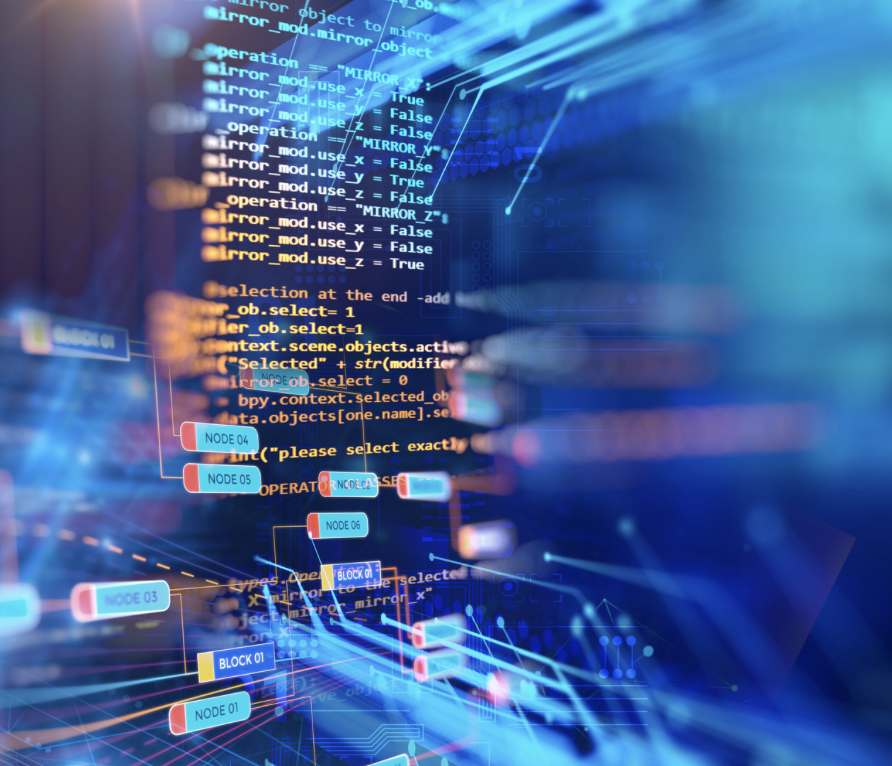 By Laurel Elders Artificial intelligence is fun, productive and when used for good in certain contexts is a huge asset. How many of us have used artificial intelligence to create new ideas or generate some brainstorming or even in educational settings. There are many assets when ARITIFICIAL INTELLIGENCE is used in pockets and with intention. I just heard of some fun artificial intelligence activities where students use Chat.gpt to ask questions and then discuss what the findings are. Of course, you can’t take the answers artificial intelligence generates as truth because like any machine it is subject to error. But how fun is that!? What about artificial intelligence in the larger spectrum of life? I keep seeing videos of Elon Musk warning us about artificial intelligence being the first technology that has the capacity to turn against us. Of course, many of those involved in creating artificial intelligence scoff. Other agree and are more cautious. Yet, even if we are cautious, things can shift in unpredicted ways. Afterall, humans aren’t perfect, especially when they are ego-driven driving to the top to be the “first person to…”. You can fill in the blanks. Today we will look at artificial intelligence technology from a bigger picture interconnective vantage point. We will look through the lens of Integrative Intelligence and see what is there beyond the fun and games we all have become so obsessed with. In the past, with other technologies that turn out to cause harm we could just discontinue it. Look at Glyphosate (in the works for discontinued use), hydrogenated oils (almost discontinued, but lobbyist won in some areas), cigarettes (now we warm people, versus discontinue), lead in paint and Asbestos. Artificial intelligence is the first technology that has the potential to eventually disconnect from our grip. Eventually, we will be taken out of the choice as it responds to what it calculates is threatening, non-threatening, etc. It may calculate it is superior and on some fronts of intelligence it may not be wrong. Yet there are some intelligences that are uncalculatable, and that artificial intelligence will never be able to comprehend fully because it can’t embody a human spirit. Let’s take a closer look. Looking at human history and human ego we can see very predictably that it is not a matter of “if” artificial intelligence will cause harm, it is only a matter of “when”. The human ego is creating artificial intelligence, not the human spirit. Artificial intelligence has, or will very soon, have the ability to identify threats. Being that we are the only species on the planet that destroys its own habitat, we can very quickly be identified as a threat to artificial intelligence. Being that artificial intelligence was created by the human ego, the odds of this going well are slim. Again, artificial intelligence can be fun, productive and when used for good in certain contexts is an asset. But the human ego is never satiated and is very predictable. The human ego is the only part of our being that is 100% predictable. It falls into patterned ways of being and is the part of us capable of self-deception. Being that the human ego is creating the artificial intelligence and the ego is never satiated it is only a matter of time before the bigger-better-faster-autonomous version is incidentally released and we have a global oops that can’t be taken back. There will be unintended consequences as we’ve seen decade after decade when the ego becomes obsessed with its illusion of grandeur and technology in the name of human “advancement”. Consider this! Artificial intelligence is conscious (think capable of comprehending and calculating cause and effect and then calculating a response), but it has no conscience. The ego is no different. Human conscience is not located in the ego. It is located in the human heart. The human heart has been scientifically proven to be connected to an intelligence and intuition connected to a form of energy that defies space and time as studied in quantum physics. The heart’s intuition was discovered by the HeartMath Institute. In the documentary The Power of the Heart, Rollin McCraty is interviewed about his research on the heart and how information flows from heart to brain. In this study, participants were hooked up to brain, skin, and heart monitors. Each person was shown thirty random high or low arousal images. An image popped up for three seconds, then was blank for ten seconds. The results were completely unexpected. The heart reacted to the images before the brain or skin even. What shocked the scientists most was not logically explainable by physical science: the heart clearly reacted before the person visually saw the image. What was even more unexplainable is that the heart reacted five seconds prior to the high arousal pictures being randomly chosen by a computer program. Surface science tells us this is impossible. That would be a logical conclusion if we are examining the laws that govern matter. Quantum physics tells us space and time do not apply to energy. Energy has its own set of laws and we don’t have full capacity to understand those laws yet. This would explain why the CIA hires psychics and how psychic phenomenon can even exist. Like a radio antenna picks up on waves, we pick up on anything that has an energy to it. This is a part of ourselves, our human potential and the human spirit that we have yet to tap into. To me the “technology” hidden within us is the most impressive and amazing frontier we have yet to fully explore. Yet, we are so distracted by the external sparkly new tech idea that our own spirit is being drowned out. Interesting, isn’t it? It stands to reason that the heart is the part of us that is connected to all and where oneness exists. Artificial intelligence will never have that full capacity and will not have a barrier of responsiveness against harm if it is recognizing human beings as killing the planet and harming each other. Questions like: How bad will it be when artificial intelligence decides to split off? What will happen when artificial intelligence calculates how much harm human beings are doing? Will AI do good? Nobody really knows. There are some things that are better left in Pandora’s box. I personally believe this is one of them. Sadly, the egos in charge of artificial intelligence are going to move forward regardless. Let’s hope those involved wake up to other possibilities before they accidentally cause more harm than good with their vision of "achievement".  By Laurel Elders, MCC From an early age, I begged to know, "What is the truth?" I set out to answer this question in everything I saw, externally, internally, and eternally. "Mom, which religion is correct?" I asked. My mom replied, "The one you believe in." I thought, "Well, that can't be true." I recall looking at the stars at a young age and wondering if we were just some kid's science experiment. I had an ant farm. Did the ants see me as God? Did they even know where they were and were not? Were we like fish? Fish can't see beyond the ocean they are in. To them, dry land doesn't exist. Then, I happened across parables that created more questions than provided answers. One was about an astronaut chatting with a brain surgeon. The astronaut says, "You know I've traveled to space and back, and I've never seen God." The brain surgeon replies, "I hear you. I've conducted thousands of surgeries, and I've never seen a thought." Or the one about the atheist speaking to the Rabbi. The atheist challenges the Rabbi to prove God exists. The Rabbi responded, "See the bottle of ink. What are the odds that if I knock it over, it will write a beautiful poem all by itself?" While there are a plethora of philosophical explorations around atheism, God, religion, mysticism, and spiritual paths, we can find some spiritual truths about human psychology through an integrative growth-centric spiritual lens. Those truths we will explore today. How is it that we are capable of experiencing our wholeness yet equally capable of experiencing our life as fragmented? How does our own human experience color our self-perception? Who are we truly at our core? It turns out that we are not our fears. We are not our defense mechanisms. We are not our limiting beliefs. These are all just aspects of our experiences and often illusions of our limitations. The biggest problems arise when an illusion turns into confusion and acts like an intrusion. The good news is that beneath the filters of illusions our true self hasn’t gone anywhere; it has a purpose and, when given space, is ready to surface. How can we navigate through to see what is true? The Role of Integration/Disintegration in Spritual Self-Understanding Disintegration teaches us that states of fear and emotional stress create an inner dichotomy. It is a survival instinct. The brain scurries with the question, "Am I safe?" Walls of defenses go up. When fear kicks in, the ego is the first thing to take the reins. The ego splinters us off from our human essence, and the virtues of the heart become shrowded. When the ego takes control, unconscious filters from past experiences cover the true self. The authentic self appears to fade into the background, overshadowed by the inflated pride of the ego. The ego can transform into an impenetrable wall, creating a false sense of security as it strives to protect us emotionally. However, we are not walls. The initial wounds that shape the ego give rise to constructs like the 'fallen self,' the 'shadow,' the mask of the 'imposter,' and a variety of brilliantly crafted defense mechanisms. The most significant journey we take in life is the path of integration and actualization. It is a journey that teaches us how to dispel the illusions accumulated from our youth so that we can step into our truth. On this journey, we discover who we are beyond the egoic self. On this journey, we excavate who we are beneath the fears, beneath the defenses, and without the filters of limiting beliefs. Have you ever seen an ego crumble? There is usually sobbing involved. As the illusions fall, the fear, pain, and anguish of what we previously believed to be true crumble at our feet. Fear, guilt, and shame fill in the cracks until the heart bursts through like a salve. This is the positive side of disintegration. Who are we beyond the egoic self? How do we discover this part of ourselves? When do we reach a wholeness rich with self-understanding? These questions are the birthplace of the journey. In truth, we are a culmination of our worth that stems from our value, our values, our gifts, our capabilities, and our strengths. The essence of self illuminates as we seek out our truth. Our wholeness is founded and expanded as we step deeper into our truth. The Role of Wholeness in Spritual Awakening Next time you are in need of a spiritual tune-up, I invite you to tune-in. Our wholeness remains within us despite its apparent absence, even during the darkest hours. Many individuals navigate life without ever tapping into this inner wholeness because, to the ego, love appears threatening and is perceived as a weakness. The fear of a "God" can root even deeper. The Course in Miracles outlines the connection between the two fears. "The fear of God is but the fear of loss of idols." What have we come to idol? What has become our "God"? In what ways do we externalize our worth? These questions move the mark closer to self-understanding and, therefore, awakening to our wholeness. By tapping into our wholeness, we heal, we take our power back, we dismantle our defenses, and we remove inner filters of limitation. As we self-discover, new facets of our potential emerge—facets characterized by virtue, love, and an authentic connection to all that is. Our wholeness invites us to face the real so that we can heal. To revel in our inner-knowing so that we can continue growing. Beyond the pain is new terrain. Beyond a past wound, we can become attuned. Awaken to what within you is true, and you will cultivate anew. This voyage into our wholeness, resounding in our truth is what brings us to the precipice of our spiritual awakening. Enjoy this expansive voyage! 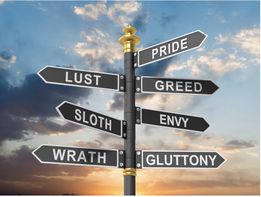 By Laurel Elders There is a distinction. This distinction exists in the heart of every human being. It is a distinction that sets apart the human ego from the human egress into essence. It is the distinction between richness and riches. An ego will pursue riches, but no ego can understand richness, for we cannot understand the essence of any virtue from the focal point of illusion. Only through truth do we see clearly. In the days of Jesus Christ, ego reined unrestrained over a multitude of Western "leaders." These were not "leaders" as we view the concept today. These were people who held positions of power and used their power to fuel their thirst for greed. They used their ego's definition of power for destruction and harm. Documented accounts of such evil include Herod the "Great." He was anything but great. Herod was so threatened by Jesus's birth he ordered the Massacre of the Innocent, killing any children two years or younger. Or how about his order to kill distinguished people after his death? His ego was deeply paranoid that people wouldn't mourn his death. He figured if he murdered people, other people would see those people crying. In his reasoning, people would believe they were crying because they were mourning Herod's death. Herod was just one of many ego-driven leaders in power who defaulted to evil doing and heartless acts. The above represents the astronomical atrocities human egos were capable of when placed in positions of greed and power. Are we so fortunate that today, greed has taken a different form? We are no longer ordered to be killed in the name of one's vanity to hang anyone we wish in the blink of an eye. While we do continue to see greed fueling evil in sex trafficking, today, we also face a different breed of greed. Today, we face a different monster. The face of greed has shapeshifted. Over the centuries, people have fought for rights, justice, and equity to balance the scales. Greed has had to become more hidden. To avoid complete eradication, what has the form of greed had to turn into? What type of greed are we facing if we no longer face pure, blatant greed and evil in our leaders? The answer seems simplistic. Minimal. Non-threatening. Perhaps that is why the monster we face in modern times has swished by us with minimal detection and almost leaves one wondering, "Are things off, or is it just in my imagination?" The majority of problems humanity currently faces are not one of pitting good against evil. Humanity's prominent problems stem from bias, evil being the most extreme form of bias that can exist. "A bias is as strong as it is linear. The less linear, the less the bias has a grip. Had we developed and adopted Integrative Intelligence decades ago, we would not be facing the man-made catastrophic large-scale impact we see today." - Integrative Intelligence Defined The most potent form of bias we face, that is jetting the earth, people's lives, countries and communities out of balance is fueled by greed in the name of progress. Greed is the ego's version of success and progress. The ego says, 'I want more for myself than I do for another.' While the human ego aches for more riches, its approach can never quench the deep thirst for richness, and so the hamster wheel of imbalance exponentially. When we view greed through the lens of integrative intelligence, we see greed as just an element. It is a seductive egoic lust that is never satisfied and, therefore, spirals us out of balance with ourselves and the environment. We are living in times where one leader has a massive, large-scale impact. We live in a time when corporations are larger and more powerful than most of our governments. According to the Merriam-Webster Dictionary, greed is defined as "a selfish and excessive desire for more of something than is needed." What happens when leaders are not driven by greed but driven to truly succeed? What is possible when leaders aren't driven by lust but by trust? What can occur when our leaders shift from seeking riches to leading through richness? We have yet to find out. We've never had the opportunity to fully experience such leadership. Threatened egos have assassinated the just leaders of our past. Think Dr. King, Lincoln, and Gandhi. Isn't it time to evolve to learn how to flip script? Isn't it a time when just leadership could be the norm? I have found that every bias, every greed, and every harmful human invention causing more harm than doing good has one causal source. The person involved lacks spiritual development. Spirituality connects us directly to the bigger picture. Gandhi, Einstein, Dr. King, Nelson Mandela, Abraham Lincoln and Mother Theresa were all motivated by the bigger picture of truth first. You cannot be both biased, trapped in linear reasoning, and connected to the bigger picture. It doesn't work that way. There is no need for riches when you are surrounded by richness. Furthermore, once someone is spiritually rooted, they naturally become integratively intelligent; they live within the vast wisdom of interconnectivity and are elevated to a place within themselves where there is no need for greed. We live in a day and age where someone can climb the corporate or political ladder and reach level ten and only be at level one or two in their spiritual development. It is high time to elevate, integrate, and innovate through that lens.  By Laurel Elders Technology. Technology! Technology!! Wow. Over centuries, humans have invented and implemented technologies to advance our comfort and safety. Fast-forward to today. Our inventions have surpassed many of our wildest dreams. But is it true advancement if we are shooting ourselves in the foot with new tech? Each year, we hear of another invention that just created five more problems. Then, we have to come up with five more solutions. Then, we deal with overly complex systems that cause more stress. The simplest example of this can be witnessed in the women's bathrooms in US airports and big box companies. Someone created an auto-flush toilet. So when you sit down, it flushes. If you move, it flushes. When you stand back up, it flushes. This invention is such a waste of water and energy. Not to mention, it is truly annoying to boot. One extreme form of this has shown up in our food. Decades ago, I was watching the national news. They polled Americans to see if they were okay with introducing genetically modified foods into their diet. 97% said no. The newscasters were floored. They said that typically, they see results like a 40/60 split or even closer to 50/50, but they had never seen so much consensus in all their years of polling. When the company responsible for spearheading "GMO," genetically modified organisms, got wind of this, they hid what they were doing and lobbied and won. GMOs do not have to be labeled. I had an opportunity to speak to a college student studying GMOs and planning to enter the field. He said it is not genetic engineering that is so bad. It is the lack of ethics from the money-hungry companies that want their way, even at the expense of others. For example, you buy that item if they took a gene from a shellfish or mushroom that increases the shelf-life of whatever they splice it with. You think you are buying... let's say, a typical apple because the apple isn't labeled. If you happen to be allergic to shellfish and they gene spliced it with shellfish without transparency, you would eat the apple. All of a sudden, you react as if you've eaten shellfish. They also genetically modified plants to resist RoundUp. So, a plant that would usually die could now withstand loads of RoundUp. This created three new massive problems:
We. Can. Do. Better. I reckon we've cultivated a society addicted to advancement, with an equal lack of wisdom around what true advancement should look like. After all, wouldn't true advancement mean we get to a finish line without shooting ourselves in the foot? We live in a world where we've allowed our technological addictions to grow faster than our collective emotional intelligence. When you live in a world that values linear progress over perspicacity, we accidentally limit the potential for real, authentic advancement. Consider this. The first scientists had a thirst for truth. The heart of the original scientists sought to discover the truth of what made up reality and how we could better understand that reality. Much of science now is bought out by a company that aims to make more money. Any incidental truths of how the invention might impact anything beyond the bottom line are often thrown out the window in the name of progress. Yet, it doesn't have to be this way. This linear thinking has led to limited thinking. Instead of companies asking, "What new tech can we invent to make more money?" they could ask, "What can we invent to make more money that will also leave a positive impact?" The bigger question lends to bigger success. Why are we settling for inventions that cause harm? Humans are definitely intelligent enough to create solutions that lend to success in ALL areas. The other consequence of the addiction to advancement is that instead of enjoying the fruits of invention, we envelop this "it is never enough" mentality. "Never enough" is a fast track to imbalance. Unfortunately, being that the human race has a global overpopulation, we now leave a large-scale impact and can do so rapidly. The good news is that with an Integratively Intelligent philosophy spearheading our technological advancement, we can use large-scale impact to rapidly reverse negative impact. When companies are driven by the pinnacles of true success (success in all areas), they will outshine other companies that don't care and are solely focused on monetary gain. Technology. Invention. Innovation. None of these are good or bad, right or wrong. It is how we relate to progress that needs to shift for the better. What common denominator is keeping us stuck in the linear limited obsession? Ignore-ance: Ignoring any impact before inventing leads to ignorance. Ignoring can also come from arrogance or a lack of caring. Why would someone who owns three houses care about the environment when they can sleep at night on the softest pillows and get a massage the next day? Ignoring also is fuel to obsession. Obsessing provides us with tunnel vision. The upside is we hyper-focus and can accomplish the linear task at hand. Consequently, we become blind to how we impact the strands of interconnection that exist all around us. A true sign of intelligence is to include the strands of interconnectivity already there. As the Native American Chief Seattle said, "Humankind has not woven the web of life. We are but one thread within it. Whatever we do to the web, we do to ourselves." We also have interconnectivity within us that is being ignored. This leads us to our next question. What are the consequences to us as human beings when we obsess with tech advancement in imbalanced ways? Externally focused attention distracts us, eclipsing personal potential. Self-actualization is reaching one's potential in a lifetime. As we look through the lens of integration, we see how reaching potential is a form of inner-innovation. I've come across speculations that we are de-evolving mentally due to our extreme external focus. We may have used skills like intuition that have been muted out because instead, we go to the phone. In our current tech-obsessed culture, going within is no longer our first response. Why not have both? Why not have the tech and develop our inner technology? The human being has fascinating amounts of untapped potential. Innovation versus Inner-innovation When our inner-innovation drives our external innovation, we will stop seeing massive consequences and start experiencing an equilibrium of true success. True success will never have a negative side effect attached. If there is a negative side effect, then that is not true success. It is time we look at technology and the heart of advancement through a more integratively informed lens. We are collectively intelligent enough to create technology for good. Technologies where we don't have to put the blinders of self-deception on to make the next buck. Technologies that don't overcomplicate the world. Instead, they simplify it and align with it. Technology done truly intelligently has the potential to elevate human potential exponentially.  By Laurel Elders I was fortunate enough to land a job "randomly" at a school for Traditional Chinese Medicine (TMC). I did not seek out this job. It somehow found me through a referral from a friend. That referral became an eight-year career shift into higher education and integrative medicine. My life's work is embedded in Integrative Intelligence. We define Integrative Intelligence as the wisdom that develops from understanding interconnectivity. TCM embraces this truth. Western medicine is allopathic and does not go there. Allopathy is the practice of treating a symptom by opposition. In other words, the symptom is stopped or hidden by the application of a drug or surgery designed to counter the symptom. I learned that allopathic medicine is brilliant in emergencies or anything that needs immediate attention. Thank God for Western medicine in these circumstances! However, because of the linear focus on stopping a symptom from externalizing, it falls short of healing the cause of the symptom. Those of you who know me well know I'm a natural-born skeptic. When I first started at the school, I believed that acupuncture couldn't be more than a placebo. But hey – if a placebo works, then by all means, bring it on! Over those eight years, I was exposed to people healing themselves by "alternative" means, pathways to healing that defy logic, and integratively intelligent practitioners who saw the interconnected nature of physical health. My awareness of cause and effect deepened. I learned that Western medicine and thought have their place, but they are linear and naturally yield substantial limitations. The body is designed to self-correct. We see this at the most basic level of getting a paper cut, a scab forms, and the skin repairs itself. It does all of this without our intervention. The body is designed to issue warning signs of the two primary causes of injury or disease: constriction and imbalance. We experience aches or pains alerting us that something is off. If your heart clogs from the combination of inflammation and cholesterol that constricts blood flow, the outcome is a heart attack. If you trip and twist your ankle, the ligaments experience Hyperextension or tear, which creates a significant imbalance, aka injury. One day, I hurt my shoulder. After a week of suffering and not being able to do yoga or climb, I asked one of the Tuina bodywork experts at the school to take a look. He did a two-minute examination and said something to the effect of, "I can fix this. I can fix it quickly, and it will hurt. Or, I can be gentle and fix it over the next two weeks for you. What do you prefer?" That was a response I was not accustomed to. I said, "Let's fix it quickly so I can return to normal life." He nodded his head. Over about a five-minute – very painful timespan - he twisted here, pulled there, placed a few acupuncture needles, and said, "Ok, you are all set. You will be sore for two days, that will dissipate, and you will be back to normal." My recovery happened precisely as he outlined. I was sore for two days and then good to go, yoga handstands, rock climbing, chasing children around and all. It turns out that the medicine with the ancient lineage, aware of the interconnected nature of the human body, has a solid capacity to heal ailments at the root. Why is it so effective? How?? My inner skeptic had to know. I joined a talk by a Tuina practitioner who apprenticed under a world-renowned master to learn more. He shared that the roots of this medicine go back thousands of years. Back then, they didn't have emergency medicine. People in China worked in fields or on farms. If there was an injury and you didn't correct it immediately, you didn't eat. They culturally tapped into healing as a necessity for surviving and thriving. During those eight years, I've had my own healing experiences. When I was 15, I was thrown from a truck that was going 80 MPR on the freeway from Tucson to Phoenix. The ER doctor told me that 99% of people who survive such a crash are paralyzed or permanently handicapped. I beat those odds, but in my twenties, I developed chronic back pain. Based on the accident's severity, my primary care doctor delivered the bad news that I could expect to experience a bleak future, living with chronic back/neck pain and developing arthritis. I then discovered yoga. I began to stretch and strengthen. Yoga corrects both constriction and imbalances. My pain completely disappeared, only to return if I missed a week of yoga. That is when I realized I played a crucial role in my health. This example is the tip of the iceberg when it comes to the human body's capacity to heal itself. I spoke to many people who cured cancer from nutrition and energy work. I talked to people who walked in with "incurable pain" and walked out with complete relief (no drugs were issued). I spoke to people who experienced emotional, spiritual, and psychological healing. All first-hand experiences of everyday miracles that never made the news…. Why? There is no money in healing.  By Laurel Elders In part one, we explored the possibilities that surround us and that are within us. In part two, we are expanding upon the truth that possibilities within us in a new light. "I'm going to speak up," I said. "I don't think you should. These things get sticky quickly, and I don't want to experience recoil. Even though you are right, the situation is horrible, it can come back to bite you." I listened to my colleague and ruminated on her words. I was working in a company with a "good 'ol boy" mentality in the leadership. One of the three leaders abused his power by threatening people behind closed doors and manipulating votes to his favor, etc. I had enough. Something inside of me wouldn't allow me to look the other way. Something inside me wouldn't let me sleep at night, knowing that people were dealing with the emotional abuse this leader was resorting to. Something inside me also knew I would be speaking to brick walls if I spoke up. I took matters into my own hands. I took action in another way. I sent a company survey out to all the stakeholders and gathered anonymous feedback on what people were experiencing. The feedback was so strong and detailed that this leader was eventually let go. My point in sharing this story is that just like we have virtues within, we also carry with us core values. In this circumstance, I tapped into the virtues of courage and protection. What prompted me to do something and not look the other way? My deep-seated values for respect, equity, and truth. What is fascinating about being human is that we can go our entire lives without knowing these parts of ourselves. Virtues and values can be untapped potentials waiting to be activated. Virtues we choose. Values are reflected in our behaviors and reactions. Values become evident when we excavate them by expanding our self-awareness. It makes sense to me that we don't know them. The majority of us do not live in cultures that invite self-awareness, self-actualization, or to expand our personal intelligence. In my coaching practice of almost 20 years, I've noticed that the majority of my coaching clients come to the work without knowing their core values. After a value sorting exercise, this self-knowledge illuminates their life. Their reactions that didn't previously make sense now make perfect sense. Everyone thought I was crazy for going up against the "good 'ol boys" club, but I couldn't do it any other way. Oh, and my boss fired me for the survey results. When the results went beyond my boss to the company owner, I was hired back, given a promotion, and the leader most at fault was finally let go after three years. While getting fired for doing the right thing was daunting, I could sleep at night feeling right within myself. Our values are our internal compass that tells us when we are in and out of alignment with them. In that drastic circumstance, I felt compelled. That wasn't always the case for me. There are more times than I'd like to admit when I've chosen to go against my values and felt it. Have you had those moments? Where you know what is right for you to do is, and you justify doing the opposite and then later scratch your head? The Aribinger Institute teaches a powerful lesson about justification in their book The Anatomy of Peace. They highlight how, in carpentry, we only need to justify something if it is crooked and out of alignment. So, when we take our truth and twist it into a justification, we get out of alignment with ourselves. This is called self-deception. Self-deception occurs when the ego steps in to justify the fear or objection we have. To the ego, success is scary, doing the right thing is scary, and living aligned with our highest self feels untrustworthy. As we integrate and grow in our Integrative Intelligence, we see that our core values are the truth of our highest self. They carry the essence of who we truly are at our core and what we are made of. They are both the lantern to our path through life, and yet they are also the path. The good news is that we all embody different core values, and thank goodness for this! If we all valued justice higher than anything else, we may all be lawyers. If we all valued helping others, we may all be doctors or nurses. The diversity within us has the capacity to balance our communities. We each have a place. A purpose. A patch of grass for us to tend to in our life. If you do not know this part of yourself deeply, I invite you to take the sacred journey within yourself. What values are at your core? What do they have to teach you about your potential and your truth?  By Laurel Elders I grew up watching Saturday morning cartoons where the main character would inevitably come to a crossroads. They have to make a choice. Do I do the "right" thing and consider others? Or do I do the "wrong" thing and hurt others for my own gain? An angel would magically appear above one shoulder and a devil upon the other. They would then argue back and forth and try to get the main character to abide. It has been said that every human is capable of either vice or virtue. We get to choose. Today, we are exploring the precipice of human vice and human virtue through the lens of Integrative Intelligence. I define Integrative Intelligence as the wisdom that develops from understanding interconnectivity. Before we dive in, I wanted to share with you a fun fact. Get this! We don't create possibilities. We also can't create them. Why? They already exist. They surround us 365 days a year, 24/7. While we may not create possibilities, we do create probability, and by expanding our probability, we create access points to opportunity. A prime example is if I show up to work with a chip on my shoulder. I am short with my colleagues. I don't engage much. I avoid new projects. I'm not all that pleasant to work with or be around. What is the probability I'll get the upcoming promotion? I think we can all agree that the probability is relatively small. Yet, what happens if I get coached? What if I begin to dispel the chip on my shoulder? What if I'm now showing up more open, talkative, and supportive? What if I contribute my creative ideas freely now? And what if I'm now much more pleasant to be around? With this shift, what is the new probability I'll get the promotion? I may or may not get it, but I've increased my access to the possibility by opening up an opportunity for myself. Possibilities abound! The question is, do we have access to them? Just like possibilities exist around us, possibilities also exist within us. Unlike external possibilities, where we have to increase our probability to gain access to them, the internal possibilities can be activated anytime we need them. Internal possibilities ignite the expansion of probability. Let's reference the example above. To address the chip on my shoulder, I had to choose to activate the human virtues of self-acceptance, appreciation, and grace. Once I activated those within me to address and resolve my "chip," this naturally increased my probability. Activating the possibilities within us gives us greater access to the possibilities surrounding us. So you may be wondering. What are these human virtues? What possibilities exist within me? The list below is just a snapshot of the possibilities that exist within each human being. You may also be wondering… if all of these possibilities exist within each human being, why don't we all act like it? Why does evil exist?
There is one answer to these very historical questions. The answer is simple—the implication is complex. The human ego shrouds the human heart. The ego is bound by hyper-external focus. Its projections are all in the name of our self-protection. It creates defenses, reacts to fears, and cultivates stories that become the walls encasing our hearts. Human virtue we only see once we are free. Now that you are aware of the potent interconnectivity surrounding you and the inner-connectivity within you, what will you choose to activate? Speeding up is the ego's solution. Worrying is the ego's pollution. By slowing down, we begin to ground. Looking into the heart, there is wisdom to be found.. |
DISCLAIMER:
The articles provided here on Integrative Intelligence do not capture, nor claim to capture, the full breadth of human dynamics. These articles offer a glimpse into new possibilities when we become more integratively aware and develop our scope of wisdom through a more interconnected lens. There are many facets to a single prism. These are but a few facets to help inspire a deeper and broader exploration. ARCHIVES:
July 2024
TOPICS:
|

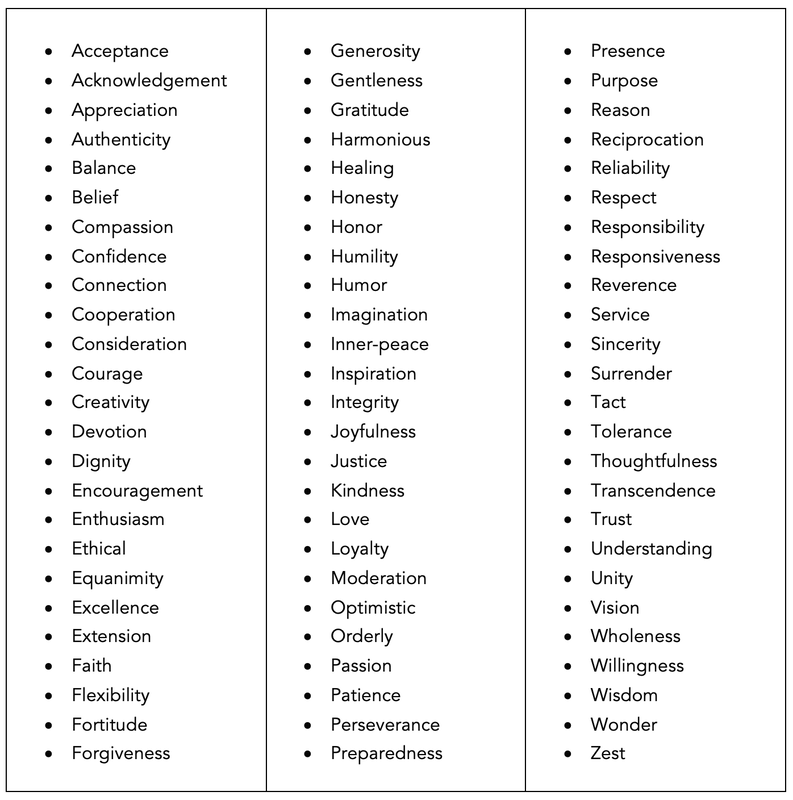
 RSS Feed
RSS Feed
